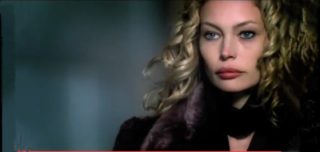
“NOT ALL that glitters is gold, habibi,” warns the trailer for “The Real Housewives of Dubai”. For nearly 20 years the “Real Housewives” franchise has followed the friendships and feuds of mostly rich, middle-aged women living in cities including Atlanta, Beverly Hills, Lagos and Melbourne. Now the format has come to the Middle East.
The series tracks the lives of six women in the City of Gold. Among them are a “mommy influencer”, an “aspiring hotelier” and a participant who claims to have been the first black supermodel in Dubai. Shots of sand dunes and camels break up scenes of boozy brunches and luxury shopping trips. The drama unfolds in what appears to be a playground for hollow excess. “If you think money can’t buy you happiness, you clearly haven’t been to Dubai,” says Nina Ali, the wannabe mum-influencer, at the start of each episode. Another housewife spends $1,200 on ice to cool down her pool.
At times the flashy, international veneer is pierced, reminding viewers that they are in the Gulf. South-East Asian nannies and maids appear to hand “madame” her designer sunglasses. Arabic is occasionally shoehorned in. On the whole, the superficial world the women inhabit is both repugnant and riveting, and reinforces stereotypes of Dubai.
Its cast endorses the notion of the emirate as a melting-pot, and its line-up is more diverse in terms of race and nationality than most other editions of “The Real Housewives”. Two of its stars are Arab, only one of whom is Emirati. The others come from America, Britain, Jamaica and Kenya. It is an accurate reflection of cosmopolitan Dubai, where foreigners vastly outnumber locals: Emiratis make up a little over 11% of the population.
The storylines are shaped by the women’s backgrounds. Chanel Ayan, the model, recounts how her father tried to marry her off at the age of 14 in Kenya. (This trauma explains why she was so upset about being excluded from a bachelorette party, she tells viewers.) She gives a goat to Lesa Milan, a fashion entrepreneur, for being a good friend.
The show questions American and European representations of Arab women. A producer asks Ms Ali, who is Lebanese-American, why most people think women in Dubai are submissive. She laughs, before answering: “They obviously haven’t been to Dubai.” Sara Al Madani, the only Emirati “housewife”, says she mainly went on the show to change how Americans view the region. “I think Arab women need a PR campaign in the Western world,” she says. The housewives’ skimpy clothing, girl-boss chat and “hustler” mentality may surprise some viewers in America.
But though the women squabble, they are united in their defence of the emirate. Ms Milan, who is Jamaican-American, jabs at America when explaining why she raises her sons where she does: “Dubai is safe, especially for little black boys.” (The Gulf is hardly free from prejudice; consider the migrant workers who were trapped in squalid dorms during the pandemic.) By presenting Dubai as secure, fun and permissive, the series plays by the emirate’s rules.
Some Emiratis have criticised the show for its vulgarity and excess, pointing out that the women on screen do not reflect real housewives. (The same might be said of the casts in Salt Lake City or Potomac, too.) Human-rights groups outside the country have also complained, saying that the series ignores the dark side of the United Arab Emirates, which has a poor record on minorities and migrant workers. The franchise is popular with lgbt people; the characters seem content to ignore the fact that gay sex is a crime in the emirate. Andy Cohen, the executive producer of the franchise who is himself gay, hasn’t commented on these reproofs.
The show’s defenders might argue that the point of “The Real Housewives” is not to unpack the complexities and politics of the city it operates in. It is, after all, light entertainment. What is less forgivable is the lack of authenticity. The outfits may be risqué, but the content is not. The catchphrases seem forced and the fights overly choreographed. As the women learn to push each other’s buttons, the show will probably find its footing. Then the cast can focus on fomenting drama, instead of acting as an extension of Dubai’s tourism board.
By The Economist




